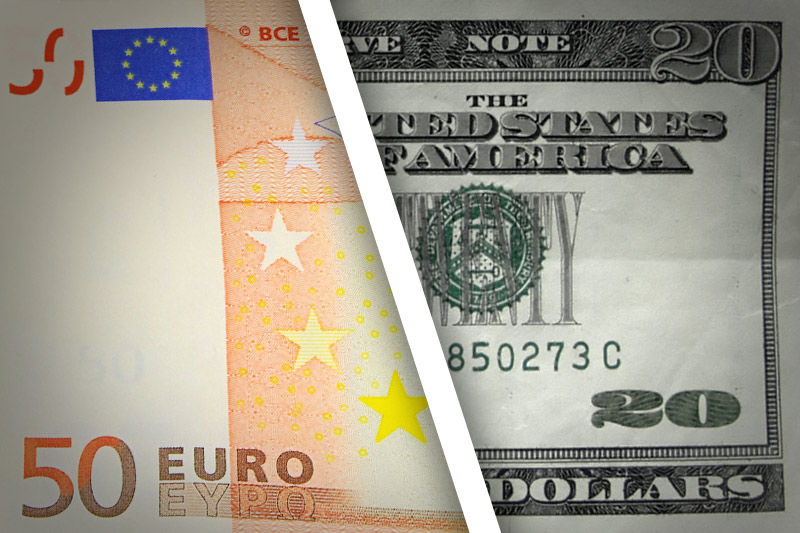Investing.com - The euro firmed against the dollar on Wednesday after data revealed euro zone factories were busier in April than markets were expecting, while soft U.S. home sales numbers dampened demand for the greenback.
In U.S. trading, EUR/USD was up 0.06% at 1.3814, up from a session low of 1.3801 and off a high of 1.3855.
The pair was likely to find support at 1.3785, the low from April 4, and resistance at 1.3864, last Thursday's high.
The euro zone manufacturing purchasing managers’ index rose to 53.3 this month from 53.0 in March, beating expectations for an unchanged reading.
The bloc’s services PMI rose to 53.1 from 52.2 the previous month, better then forecasts for a 52.4 reading.
Recovery in Germany, the euro zone’s largest economy accelerated this month, with activity in both the manufacturing and service sector strengthening, but growth in the French private sector lost momentum.
Capping the single currency's advance was uncertainty over European monetary policy.
ECB President Mario Draghi has warned that further gains in the euro would trigger additional monetary easing to keep inflation rates in comfort zones.
The annual rate of euro zone inflation slowed to 0.5% in March, the lowest since November 2009.
On Thursday, Draghi is due to speak in Amsterdam, and markets remained in standby mode ahead of then.
Meanwhile in the U.S., the Commerce Department reported earlier that sales of new homes in the U.S. fell to their lowest levels since July 2013 in March.
Sales on new homes dropped 14.5% to a seasonally adjusted rate of 384,000, lower than analysts' forecasts for a sales rate of 450,000.
Elsewhere, the euro was up against the pound, with EUR/GBP up 0.39% to 0.8238, and down against the yen, with EUR/JPY down 0.29% at 141.25.
In the U.K. earlier, the minutes from the Bank of England's most recent policy meeting showed that the monetary authorities were “uncertain” about the amount of slack remaining in the economy and also held differing views on the outlook for inflation over the medium term.
The annual rate of U.K. inflation came in at 1.6% in March from 1.7% the previous month, the lowest level since October 2009.
The minutes also showed that voting members voted unanimously to keep interest rates at a record low 0.5%.
A separate report showed that the U.K. government has hit its target for deficit reduction for the last financial year.
The Office for National Statistics said that public sector net borrowing in 2013 to 2014 came in at £107.7 billion, or 6.6% of gross domestic product.
On Thursday, markets will track ECB President Mario Draghi's speech in Amsterdam.
The U.S. is to publish data on durable goods orders and the weekly report on initial jobless claims.
